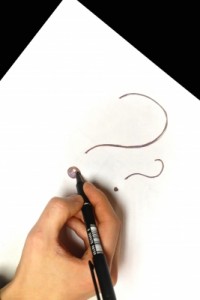If you’re having trouble finding balance, B12 deficiency might be the culprit. Symptoms of vitamin B-12 deficiency– dizziness and nerve damage like ataxia (unsteady gait, difficulty keeping balance), and numbness or tingling in hands and feet require B12 supplements.
Vitamin B12 deficiency symptoms
Vitamin B12 occurs naturally in all meat, cheese, and egg products, but if you are one of millions of people who cannot absorb B12 efficiently, then you will start feeling symptoms of vitamin B12 deficiency. Some common emotional and cognitive signs of B12 deficiency are:
 Chronic fatigue, sleepiness
Chronic fatigue, sleepiness- Memory loss
- Confusion
- Difficulty concentrating
- Depression
- Anxiety
- Aggressiveness
- Paranoia
- Psychoses
- Dementia
Nerve damage caused by B12 deficiency
In addition to psychiatric symptoms, vitamin B12 deficiency causes severe damage to your nerves, notably subacute combined degeneration (SCD) of the spinal cord– a severe neurological disorder caused by B-12 deficiency. SCD causes damage in your spinal cord, brain, and peripheral nerves, beginning with the myelin sheathe.
 1- The myelin sheathe- your nervous system’s “ozone layer”
1- The myelin sheathe- your nervous system’s “ozone layer”
The myelin sheath is a protective covering that surrounds many of your nerves, providing a shield from potential danger. The myelin sheathe also accelerates communication between your nerves and your many bodily sensors (hands, feet, tongue, nose, eyes). Vitamin B12 aids your body in maintaining this essential protective mechanism, and low levels of B12 often result in a breakdown of the myelin sheathe.
2- Communication breakdown
The nerves of your spinal cord rely on a steady inflow of information from your nerve sensors throughout your body. Messages from the nerves in your legs, for example, flow along the spinal cord and to the brain, thus controlling movements like running, walking, skipping, and tapping your feet. Nerve damage causes these signals to become misinterpreted, resulting in poor coordination, or gait ataxia.
3- Gait ataxia- taking the spring out of your step
A typical sign of abnormal neurological behavior resulting from B12 deficiency is gait ataxia, which is difficulty walking. Gait ataxia is also one of the symptoms of pernicious anemia, red blood cell disease associated with prolonged vitamin B-12 deficiency. Symptoms of gait ataxia are:
- Unsteady gait, difficulty walking without stumbling
- Difficulty staying balanced on one leg
- Trembling awkward movements, clumsiness
- Muscular weakness in the legs and arms
- Spasticity
- Hypotension (low blood pressure)
- Vision problems, blurriness
4- Paresthesias- “pins and needles” and numbness sensations
An early sign of nerve damage related to vitamin B12 cobalamin deficiency is paresthesias, resulting in numbness and tingling in the hands and feet. Paresthesias is a kind of peripheral neuropathy that affects the peripheral nerves that run along your spinal cord and to your extremities, thus causing that pins and needles sensation that you often feel in your hands and feet.
Do you have vitamin B12 deficiency? Go ask a hematologist.
The only way to determine if you are indeed suffering from vitamin B12 deficiency is by getting a blood test. If a physician diagnoses you with dangerously low levels of B12, then he may recommend B12 injections, which will require a prescription.
Sources:
- Vitamin B12- Evidence- Mayo Clinic
- Vitamin B12 Deficiency & Ataxia- LIVESTRONG.COM
- B12 and Gait Ataxia
- B12 Deficiency and Dizziness
- Neurologic aspects of cobalamin deficiency- PubMed NCBI
- Subacute Combined Degeneration – Symptoms, Diagnosis, Treatment of Subacute Combined Degeneration – NY Times Health Information
Image credits, from top:





